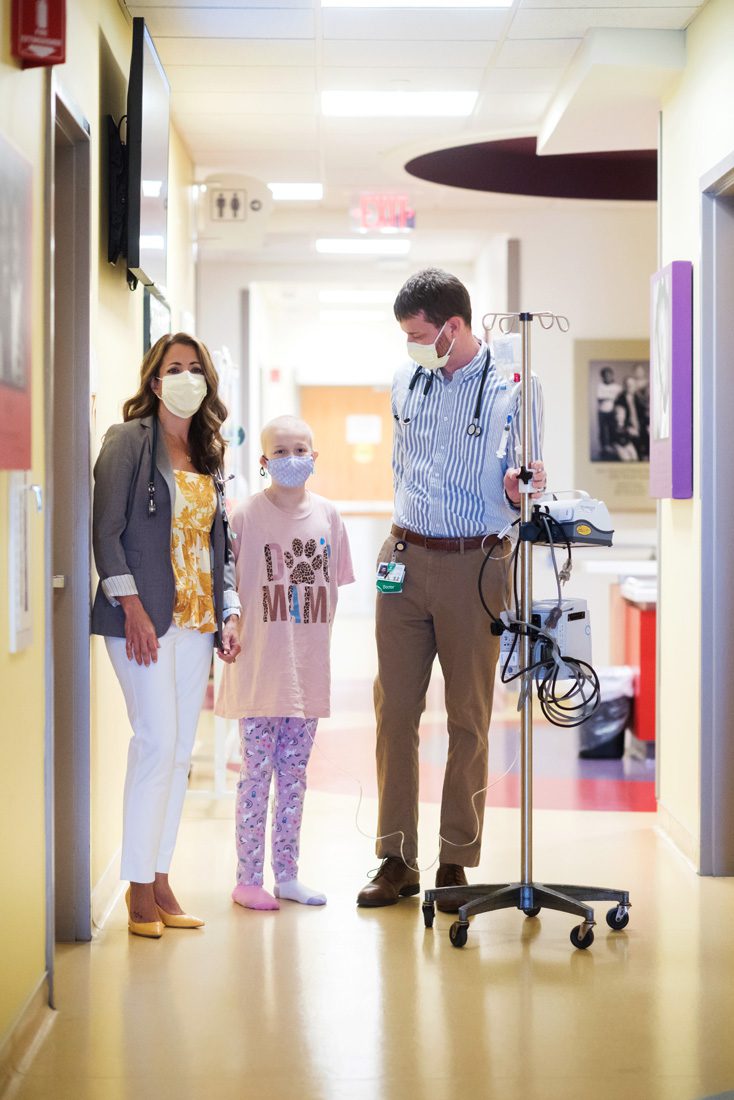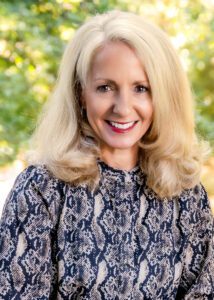CURE Childhood Cancer funds testing that leads to personalized treatment in young cancer patients!

Last September, a 6-year-old boy was diagnosed with a low-grade brain tumor. His medical team started him on low-dose chemotherapy, and he began reacting negatively to the treatment, which caused fluid on his brain and necessitated a shunt. During that precarious time, his team received the young patient’s results from genetic sequencing through the Precision Medicine Program at the Aflac Cancer and Blood Disorders Center at Children’s Healthcare of Atlanta. According to Kristin Connor, chief executive officer of CURE Childhood Cancer, those results completely changed both his diagnosis and prognosis.

“The sequencing revealed that it was a high-grade tumor. It also contained a mutation that is commonly found in lung cancer,” she says. “The chemo he was on was never going to work for him. With the information, they were able to put him on a drug that targeted his tumor’s mutation, one that treats adult cancer. He’s now 7. He started the first grade, and he’s doing great. That genetic sequencing drastically changed his course of treatment.”
What boggles Connor’s mind, however, is that insurance does not cover the genetic sequencing offered by the Precision Medicine Program. What’s more, only 4% of the federal funding designated for cancer research is directed at pediatric cancers. That is where CURE steps in. Founded in 1975 by Emory University pediatric oncologist Dr. Abdel Ragab, CURE has raised more than $89 million for research and support services over nearly five decades.
“We focus 100% on research that’s specific to childhood cancers,” Connor says, adding that many adult cancer treatments do not work on childhood-specific ones. “Our goal is to help those kids who don’t really have any treatment options and get [treatments] to their bedside within two to three years. That’s where we focus our research funding.”
In 2015, Dr. Douglas Graham, director of the Aflac center, approached CURE about genetic sequencing and its potential. “He said there was a better way to treat these kids, that we could take their tissue samples and have genetic sequencing done. We could look for mutations and genetic changes and target them with very personalized and precise treatment,” Connor says. “This is the most promising option that’s come along in decades, but there’s no funding for it.”
CURE committed $4.5 million in 2017 to help develop the Precision Medicine Program at the Aflac center. Since then, the organization has donated approximately $1.5 million per year to the program.
The money helps pay the $5,000 fee for comprehensive sequencing for each eligible patient who has been diagnosed with high-risk cancer, is not responding to treatment or has relapsed. The money also funds research. “Some of the mutations that are found do not have a drug that treats them yet, so this is informing research,” Connor says.
Six years after that initial financial gift, the researchers working with the Precision Medicine Program published a paper revealing that 85% of the children who receive genetic sequencing get information that impacts their treatment. It’s why CURE continues to partner with the Aflac center and Children’s to make the program available. “These kids need our help, and no one is helping them. It is not a priority nationally, but we have the ability to really impact survival for them,” Connor says. “We can do it, and we should. It makes a huge difference.”
CURE CHILDHOOD CANCER
770.986.0035
curechildhoodcancer.org
@curechildcancer
15 Minutes With columnist at Simply Buckhead. Freelance feature writer, children’s book author and President of Green Meadows Communications, LLC.

















